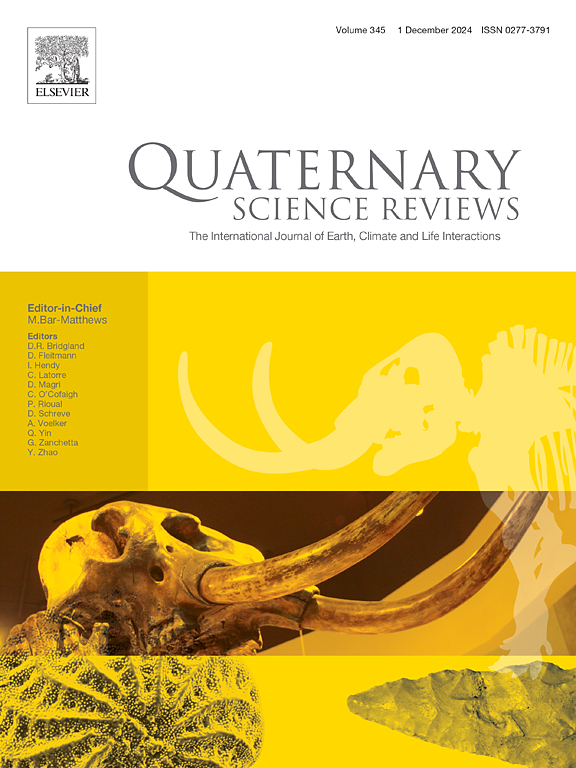Exploring branching corals as high-resolution paleo-SST archives
IF 3.2
1区 地球科学
Q1 GEOGRAPHY, PHYSICAL
引用次数: 0
Abstract
Branching coral reconstructions have the potential to significantly enrich paleoclimate records derived from fossil reef cores. This study explores the utility of Acropora and Pocillopora corals as high-resolution archives for paleo-sea surface temperatures (paleo-SSTs) in the western tropical Pacific. Analyses of biweekly-to weekly-resolution Sr/Ca ratios in modern corals revealed distinct seasonal variations consistent with local SSTs, particularly during the 2016 El Niño event. Given the evident interspecies variabilities in Sr/Ca, separate calibration equations from combined Sr/Ca-SST records were established for each genus. These equations were applied to derive paleo-SSTs from subfossil core records, which were subsequently integrated into a ∼1000-year paleo-SST reconstruction. Our paleo-SST records showed comparability with reconstructed SSTs from other archives in adjacent regions. These findings highlight the potential of branching corals as novel and abundant sources of paleo-SST data. Additionally, this study emphasizes the need to address uncertainties arising from sample size limitations and inter-colony offsets. Incorporating data from both branching genera and massive corals, such as Porites, could further expand and enhance subfossil archives for robust paleoclimate reconstructions.
求助全文
约1分钟内获得全文
求助全文
来源期刊

Quaternary Science Reviews
地学-地球科学综合
CiteScore
7.50
自引率
15.00%
发文量
388
审稿时长
3 months
期刊介绍:
Quaternary Science Reviews caters for all aspects of Quaternary science, and includes, for example, geology, geomorphology, geography, archaeology, soil science, palaeobotany, palaeontology, palaeoclimatology and the full range of applicable dating methods. The dividing line between what constitutes the review paper and one which contains new original data is not easy to establish, so QSR also publishes papers with new data especially if these perform a review function. All the Quaternary sciences are changing rapidly and subject to re-evaluation as the pace of discovery quickens; thus the diverse but comprehensive role of Quaternary Science Reviews keeps readers abreast of the wider issues relating to new developments in the field.
 求助内容:
求助内容: 应助结果提醒方式:
应助结果提醒方式:


